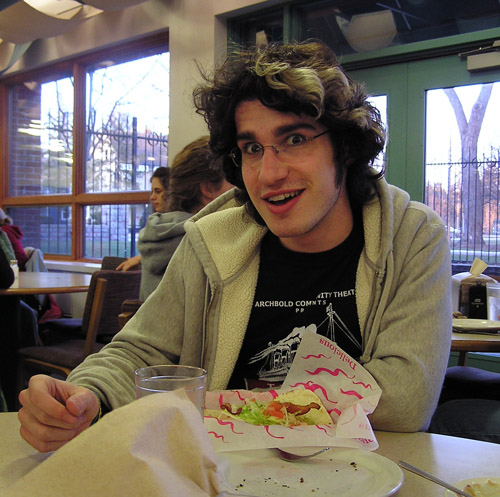Until recently I was hoping to spend my sunny summer days in Goshen, working toward the beginning of a transformation: blank-slate farm to sustainable-earth-friendly-dream-farm. My aspirations were laid to rest a few weeks ago, though, when I read the Record article concerning the President’s Council’s rejection of Heifer International’s gift.
Heifer International is an organization that buys livestock and gives it to needy people in other countries and then teaches them how to use the livestock as a renewable resource that can stay with their families for generations.A nine-acre farm with a large house and a gigantic barn here in Goshen served as their regional office but is no longer needed. In keeping with their tenets of sustainability and charity, they decided to offer up the facility as a donation to Goshen College to use as an educational site.
In response, an interdisciplinary faculty committee was formed to discuss options for the farm. One of the committee members, Ryan Sensenig, assistant professor of biology, taught an ecology class full of excited individuals (of which I was one), which formed a student sub-committee to generate ideas on how we could make the farm work for us as we worked for it.
The only stipulation was that the farm was supposed to be “economically neutral.”
We explored raising crops to sell to students through a campus farmer’s market or co-op, as well as a “work for food” program that would have brought many students out to the farm. We toyed with educational opportunities, including a possible one-hour farming class or mini-seminars that could be opened to the community.
We even threw around the idea of eco-friendly-ifying the house (which we were thinking a student farm manager and a few other biology or eco-science students would live in during the year) over a summer – maybe as an internship or work-study program.
If we had a bit of capital to begin the process, the farm would have sprouted as a bud that needed some nurturing but would have soon bloomed into a self-germinating flower that would have perpetually provided community, food, education and fun.
Where could this capital have possibly come from?
We’re a small liberal arts college that should be capitalizing on gifts like these (where are we going to find another pre-fab farm?), even if they are going to require some upkeep (everything does).
As far as I can tell, trains aren’t a problem here. I’ve only had to jump a few in nearly two years, yet Goshen College has already spent $30,500 just in consideration of building a train underpass.
Individuals from all over the world come to Goshen because of a certain draw, not because it is close (definitely not because it is cheap). But the college just blew who knows how much on local Super Bowl commercials.
I just wanted to take care of some sheep and cows and help get some good produce into the hands of my fellow students. Power (and sheep) to the people!
Clayton Matthews is a sophomore interdisciplinary major from Pettisville, Ohio.



